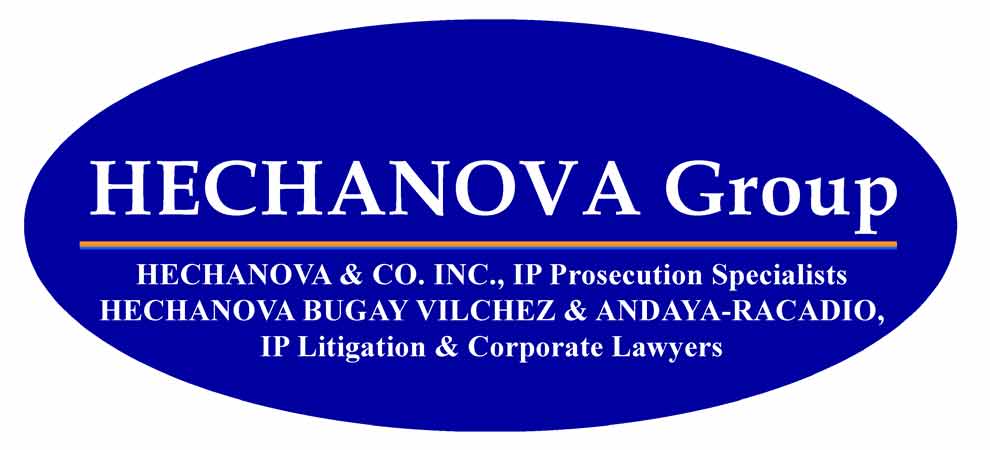Safeguarding trademarks presents real challenges amid the pandemic, with massive shifts to online trading, difficulties getting cases to court and physical enforcement challenges to name a few. As policymakers and regulators rush To adapt, many Asian jurisdictions have rejuvenated their regimes to protect valuable IP and the public interest
The primary legislation governing trademarks in the Philippines is the Republic Act, also known as the IP Code of the Philippines. The IP Office of the Philippines (IPOPHL), particularly the Bureau of Trademarks (BoT), is the government agency tasked with registering trademarks in the country.

President and Managing Partner
Hechanova Group in Makati City
Tel: +63 8812 5545
Email: editharh@hechanova.com.ph
Filing
Before the pandemic, an applicant could file its application for trademark registration with the IPOPHL manually, by post, or online. However, to ensure compliance with health protocols and preventive measures to avoid covid-19 infection, online filing and payment were made mandatory on 1 September 2020, through IPOPHL memorandum circular No. 2020-036.
Only applications involving payments of PHP100,000 (USD2,200) or more per transaction are filed manually. Trademark applications may be filed via the national route (direct filing) or the Madrid system – an international system for facilitating trademark registration in multiple jurisdictions worldwide – by designating the Philippines.
Examination
Inspired by best practices from the European Intellectual Property Office, the IPOPHL has adopted the joint examination track (JET) procedure, where a group of senior examiners will immediately decide on a trademark’s registrability on absolute grounds. If allowed by the JET examiners, the trademark application is published for opposition for 30 days, and if there is no opposition it will be deemed registered on the 31st day.
If the trademark is not allowed, the applicant is notified promptly. The JET procedure does not apply to trademarks being objected to on relative grounds, e.g., where there is the likelihood of confusion with an identical or similar mark, the application undergoes the regular trademark examination. Presently, only visible trademarks are protected under the code, including non-traditional trademarks such as three-dimensional, position, hologram and motion marks.

Principal and Vice President of Trademarks
Hechanova Group in Makati City
Tel: +63-8888-4293
Email: noemi.rivera@hechanova.com.ph
Opposition and cancellation
The bureau of legal affairs within the IPOPHL has original jurisdiction over opposition and cancellation action, a summary proceeding. In deciding the contest between contending trademarks and determining the likelihood of confusion, case law has developed two tests – the dominancy test and the holistic, or totality, test.
The dominancy test focuses on the similarity of the prevalent features of the competing trademarks that might cause confusion or deception. Given greater consideration are the aural and visual impressions created by the trademarks in the public mind.
On the other hand, the holistic test entails considering the entirety of the trademarks. The dominancy test is expressly provided for in the code, but case laws also apply the holistic test. Surprisingly, in Kolin Electronics Co v Kolin Philippines International (2021), the Supreme Court en banc made it crystal clear that the holistic test has been abandoned
Prior use
The Philippines follows the first-to-file regime. In many decisions in the past, the prior user in good faith defeated the right of the first filer in good faith, even invalidating a registered trademark. In the landmark decision of Zuneca v Natrapharm, the Supreme Court ruled that trademark ownership is acquired solely by registration, citing section 122 of the code, which provides that “the rights in a mark shall be acquired by registration made validly in accordance with the provisions of this law”.
Some justices dissented, unable to accept that “use” has been abandoned as a mode of acquiring ownership of the trademark, since section 124.2 of the code expressly mandates the registered owner of the trademark to file a declaration of actual use (DAU). Such certificate of registration is prima facie evidence of the
validity of the registration and the registrant’s ownership of the trademark.
Justice Alfredo Benjamin Caguioa, who wrote the majority opinion, said that the DAU did not refer to the mode of acquiring the trademark, but was a requirement to maintain ownership of the mark. He also wrote that the prima facie nature of the certificate of registration does not reflect that prior use is still a recognised mode of acquiring ownership under the code.

Assistant Vice President of Trademarks and Junior Partner
Hechanova Group in Makati City
Tel: +63 8812 6561
Email: joymarie.tolentino@hechanova.ph
Rather, it is meant to recognise the instances when the certificate of registration is not reflective of ownership of the holder, such as when:
(1) the first registrant has acquired ownership of the trademark through registration, but subsequently lost the same due to non-use or abandonment;
(2) the registration was done in bad faith;
(3) the trademark itself became generic;
(4) the trademark was registered contrary to the code (e.g., when a generic mark was successfully registered for some reason); or
(5) the registered mark was being used by, or with the permission of, the registrant to misrepresent the source of the goods or services on or in connection with which the mark is used.
The decision further stated that a prior user in good faith could continue using its trademark, but could only transfer or assign the trademark with the business related to it.
Maintaining the trademark registration
The issuance of the certificate of registration for trademarks filed via the national route, or the statement of grant of protection for trademarks filed via the Madrid system, are not the ultimate steps in securing trademark protection.
While the filing of evidence of use is not a prerequisite for the grant of the registration, the same must be submitted with the IPOPHL within specified periods to maintain the active status of a trademark. The common causes of trademark removals from the registry are the non-filing of the DAU, or the failure to comply with the use requirement.
In the case of Birkenstock Orthopaedie GmbH & Co KG v Philippine Shoe Expo Marketing Corp, the Supreme Court held that failure to file the DAU within the requisite period resulted in the automatic cancellation of registration of a trademark. In turn, such failure was tantamount to the abandonment or withdrawal of any right or interest the registrant had over the trademark.
Licensing. One of the easier modes of entering the Philippines market is through licensing. A licence agreement involving trademarks and other IP rights need not be registered, but has to comply with the provisions of the code relating to prohibited clauses and mandatory clauses, being considered a technology transfer arrangement (TTA). Licensors usually have questions on the following clauses:
A non-compete clause. Jurisprudence shows that a non-compete clause may be allowed, provided it does not exceed one year;
Philippine laws shall govern the interpretation of the agreement, and in case of litigation, the venue shall be the proper court in the licensee’s residence; and
The licensor shall bear taxes arising from the licence agreement. There is an exception, such as the value-added tax (VAT) that can be passed on to the licensee, but there is a need to request for said exemption.
Enforcement of trademark rights. Actions such as infringement and/or unfair competition may include administrative, civil or criminal. The IPOPHL has jurisdiction over administrative action, can award damages, and has authority to issue provisional remedies such as preliminary injunctions.
The IPOPHL can issue seizure orders, but not as a separate proceeding or during the pendency of an action. It is the regular courts that can do so in a civil case or a criminal proceeding. Due to the pandemic, some courts have opted to conduct hearings and receive filings online.
The IPOPHL has mandated the online submission of initiatory and all other pleadings for inter partes cases, such as oppositions and cancellations. Failure to do so results in the non-prejudicial dismissal of the actions. Enforcement actions such as raids continue despite the pandemic, with the enforcing agencies and representatives of the trademark owner wearing the necessary masks and face shields, and observing social distancing.
Border Control. A relatively cheaper mode of fighting counterfeits is by preventing their entry into the Philippines market through the Bureau of Customs (BoC), which has the power to seize counterfeit goods. Recordation of the trademark with the BoC is inexpensive and provides a continuing alert to bureau examiners to watch out for fakes. Furthermore, a BoC officer can issue a letter of authority to inspect and seize the suspected imported goods for which the proper taxes and duties may not have been paid, and usually, these are counterfeits. Despite the pandemic, the bureau continues to provide this service.

HECHANOVA GROUP
(Hechanova & Co Hechanova Bugay Vilchez & Andaya-Racadio)
GF, Salustiana D. Ty Tower,Paseo de Roxas Ave.
Makati City — 1229, Philippines
Contact details
Tel: +632 8893 4878
Email: mail@hechanova.com.ph






























